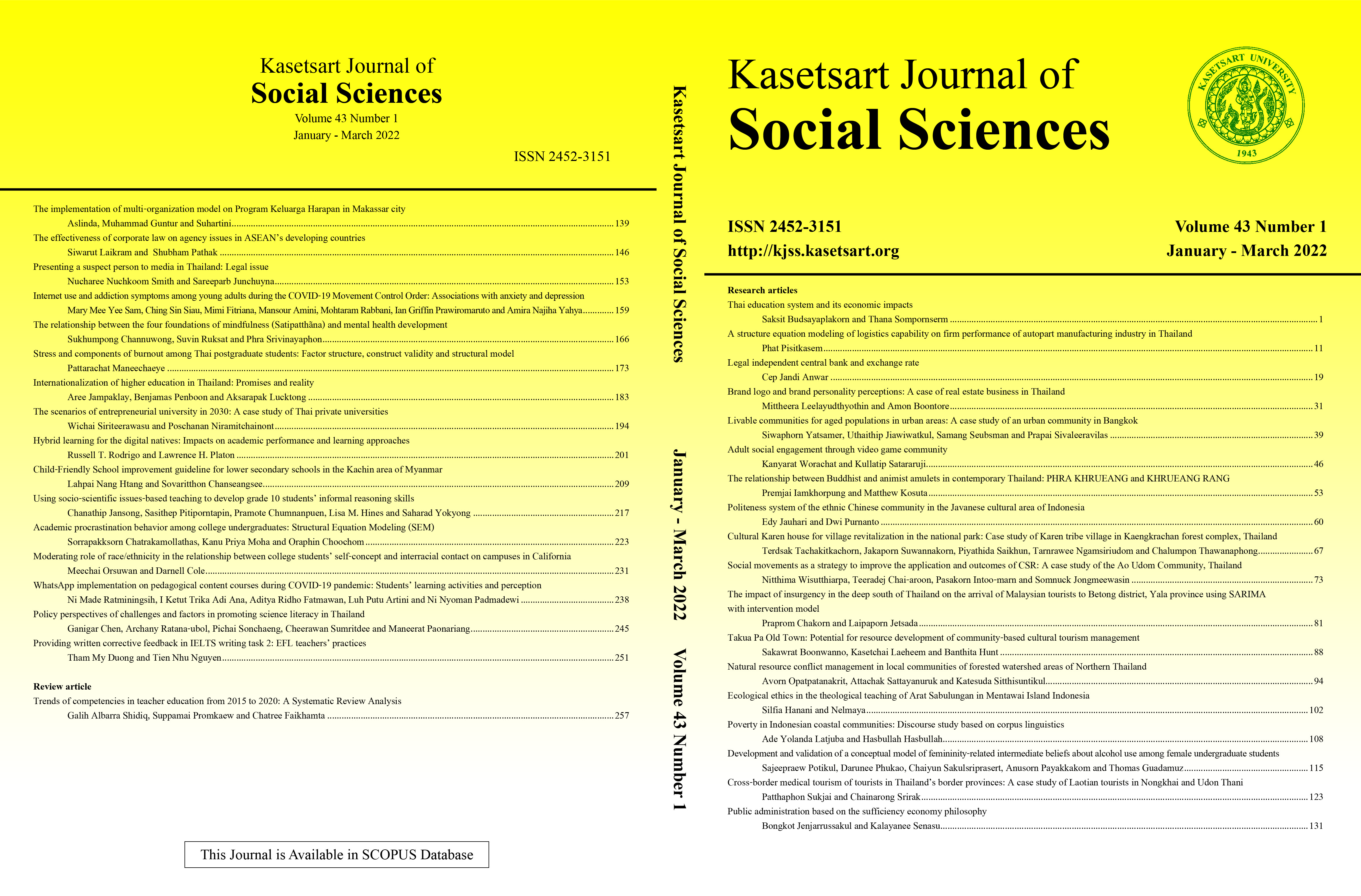Hybrid learning for the digital natives: Impacts on academic performance and learning approaches
Keywords:
deep learning, high order thinking, hybrid learning, integrative learning, reflective learningAbstract
Multitudes of relevant learning modalities have been heavily researched in higher education, seeking effective curricular delivery to address surface learning and the demands of the industries. One of the trends in 21st-century teaching and learning is hybrid learning. Hence, this study aimed to find out if hybrid learning makes a significant difference in students’ academic performance and learning approaches in the delivery of English academic courses at an international university in Bangkok, Thailand. This study employed the factorial research method and two types of a hybrid classroom, which were 50 percent – 50 percent and 70 percent – 30 percent modalities. The effectiveness of the modalities was measured through students’ scores in pretest and posttest of Deep Learning Survey Questionnaires and academic performance that demonstrate the three dimensions of deep learning (high order thinking, integrative, and reflective learning). The results showed that the 50 percent – 50 percent hybrid learning modality made a significant difference in students’ academic performance compared to 70 percent – 30 percent hybrid learning modality. However, based on the self-survey questionnaires, 70 percent – 30 percent showed a significant difference. This means that self-survey scores do not reflect students’ actual academic performance. Based on the findings, it can be inferred that 50 percent – 50 percent hybrid learning made a significant difference in academic performance; hence, it is the proposed hybrid-learning model. These results might be useful in the development of a technologyintegrated curriculum in higher education to address the required skills of 21st century graduates.
Downloads
Published
How to Cite
Issue
Section
License
Copyright (c) 2022 Kasetsart University

This work is licensed under a Creative Commons Attribution-NonCommercial-NoDerivatives 4.0 International License.
This is an open access article under the CC BY-NC-ND license http://creativecommons.org/licenses/by-nc-nd/4.0/










